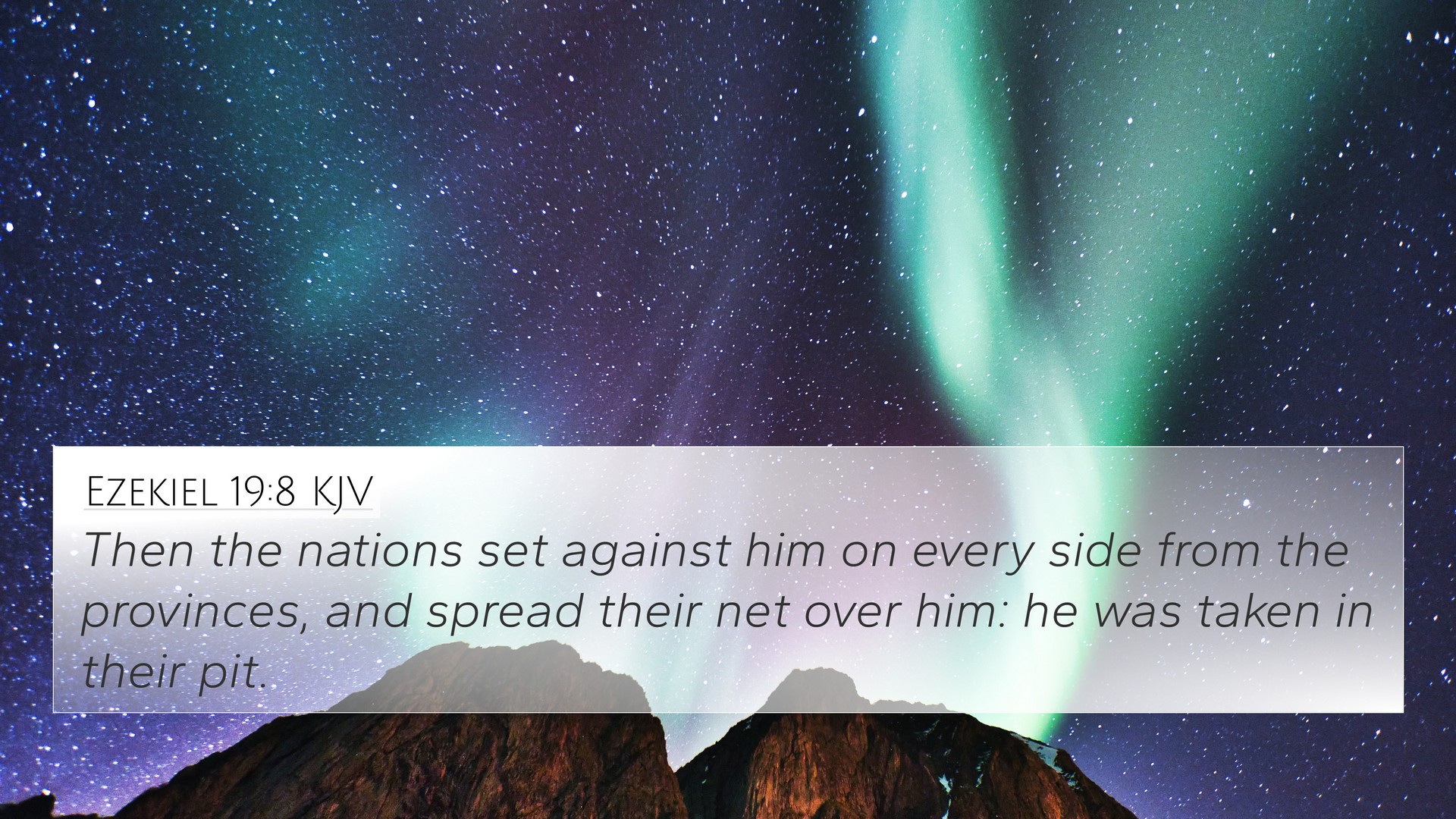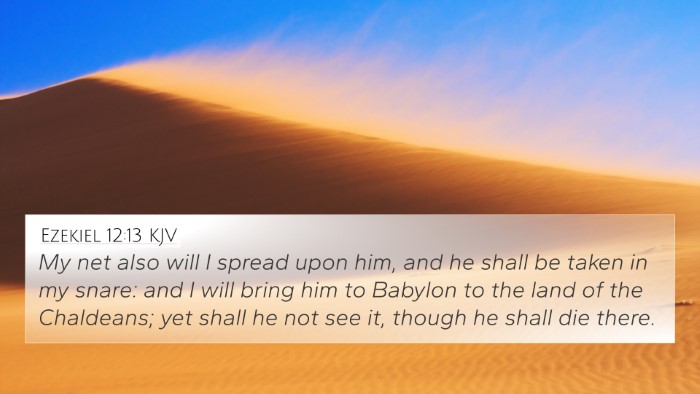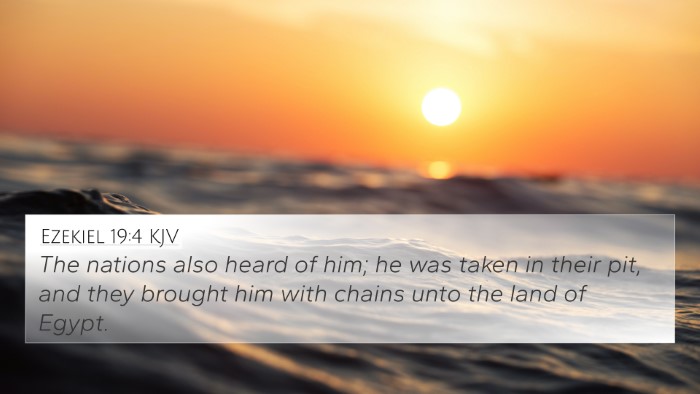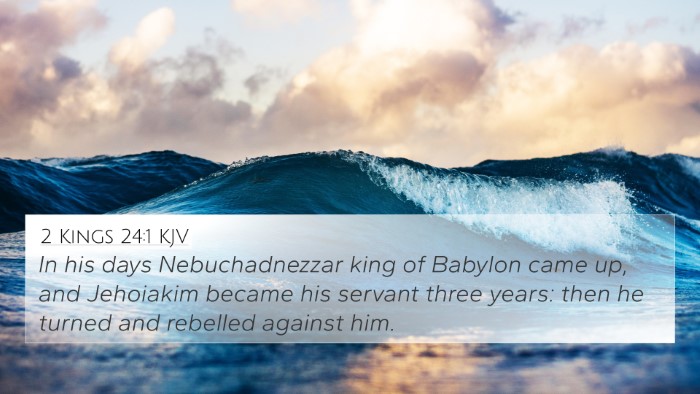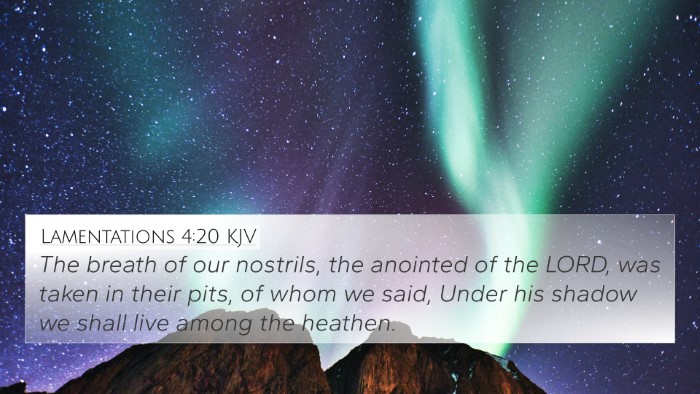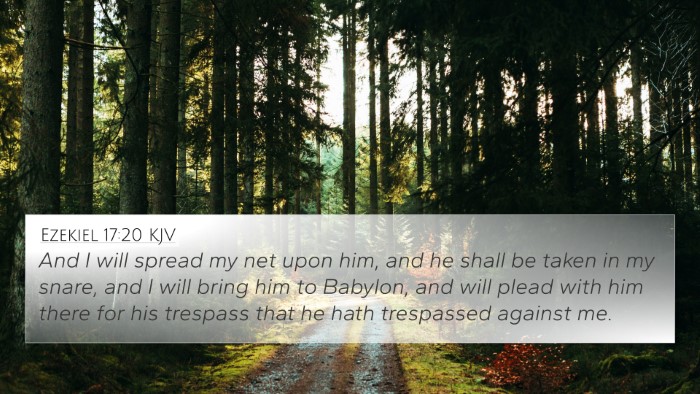Ezekiel 19:8 - Understanding the Meaning and Context
Ezekiel 19:8 states: "Then the nations set against him on every side from the provinces; and they spread their net over him: he was taken in their pit." This verse encapsulates the themes of loss, judgment, and the tragic fate of the leaders of Israel during the Babylonian exile. It serves as a poignant reminder of the consequences of turning away from God and the devastating impact of external forces on a nation that has strayed from its covenant with the Lord.
Contextual Overview
The Book of Ezekiel is a prophetic text reflecting a time of crisis for Israel as the nation faces impending judgment. Ezekiel, as a prophet, conveys messages from God that often speak about the nation's sins, the inevitability of judgment, and the hope for restoration. Ezekiel 19, specifically, uses a lamentation style to mourn the fall of the monarchy and the judgments that befell the people of Israel.
Commentary Insights
Matthew Henry's Commentary
Matthew Henry emphasizes the sorrowful nature of this lament. He notes that this passage is a metaphorical representation of Israel's leaders who, due to their ungodly tenure, ultimately led the nation into decline. The imagery of being caught in a net illustrates the inescapability of God's judgment and highlights the futility of worldly power against divine retribution.
Albert Barnes' Commentary
Albert Barnes further elucidates the implications of this verse, arguing that the "nations" symbolize a larger force of judgment representing Babylon's impending invasion. Barnes interprets the "pit" metaphor to reflect not only Israel's political downfall but also their spiritual calamity as they abandon their faith. This underscores the lesson that societal and spiritual failures often lead to collective consequences.
Adam Clarke's Commentary
Adam Clarke expounds on the prophetic nature of this text, suggesting that this moment serves as a critical turning point for the nation. Clarke points out the inevitability of defeat, emphasizing that those who oppose God and disregard His commands will find themselves ensnared by the very powers they trusted. Clarke's view reinforces the understanding of the history of Israel in the context of divine retribution.
Key Themes
- Divine Judgment: This verse captures the essence of God's judgment against unfaithful leaders.
- Tragedy of Leadership: It serves as a warning about the consequences of poor leadership and moral decay.
- Hope and Restoration: Although judgment is pronounced, there is an underlying theme of hope for eventual restoration following repentance.
Cross-References
This verse connects deeply with several other scriptures that enhance its meaning. Below are key cross-references that illustrate these themes:
- 2 Kings 24:14-16: Describes the exile of Jerusalem and its unfortunate leaders.
- Lamentations 1:1-3: Expresses the mourning over the fallen state of Jerusalem.
- Jeremiah 52:28-30: Details the fate of those taken away during the Babylonian captivity.
- Isaiah 47:5-7: Speaks of the judgment against Babylon, reflecting on divine justice.
- Ezekiel 17:20-21: Illustrates God’s judgment on those who break His covenant.
- Ezekiel 12:13: Prophesies the capture and exile of leaders as a consequence of disobedience.
- Proverbs 11:3: Highlights the consequences of wickedness against the foundation of trust in the Lord.
Thematic Connections
The themes in Ezekiel 19:8 resonate with broader biblical narratives regarding the fate of nations and the consequences of leadership. By examining these connections, one can engage in a more profound comparative Bible verse analysis that delves into how unfaithfulness is a recurring motif throughout scripture. Other significant thematic connections include:
- Hope amidst Judgment: Many passages reveal God's desire to restore His people, similar to themes found in Isaiah 40:1-2.
- The Role of Prophets: The emphasis on prophetic warnings in Ezekiel can be linked with the denial of those messages in Matthew 23:37-39.
- Power and Judgment: The futility of putting trust in earthly powers reflects 1 Corinthians 1:27-29, where God often uses the weak to confound the strong.
Conclusion
In conclusion, Ezekiel 19:8 serves as a stark reminder of the consequences of disobedience and the reality of divine judgment. By linking this verse with various biblical texts, we can gain a deeper understanding of the intricate relationships between different scripture passages. Tools for Bible cross-referencing, such as a Bible concordance or cross-reference guide, provide invaluable resources for exploring these connections, enriching one's Bible study experience.
